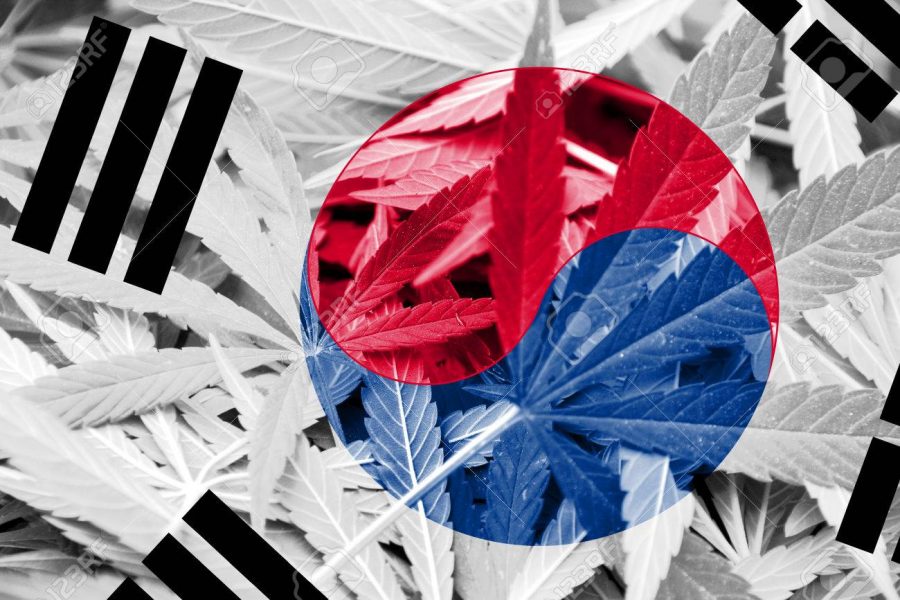This conservative East Asian country just legalized medical cannabis
Something incredible is happening in the world of weed. Cannabis is being legalized on a colossal scale, with Asia being the latest place on the map to give weed the green light. Specifically, South Korea has recently legalized medical cannabis.
The news comes as quite of a shock, considering the East Asian country is wildly conservative. But then again, is it really that surprising? Is this what we’ve been waiting for?
The word “cannabis” is sprouting up in many conversations as of late, with the outcome of a recent Hong Kong conference contemplating the plant’s economic and medical potential throughout Southeast Asia sending a ripple effect across the nation.
With Malaysia considering legalization, a Singaporean company called CannAcubed preparing for a weed-focused project in China and Thailand recently submitting a bill for medical cannabis, it’s pretty clear that cannabis reform is catching on far beyond the boundaries of Canada and the United States.
South Korea amends Narcotics Control Act
Residents of South Korea can now get their hands on medicinal grade cannabis, whether they plan on using it to treat chronic pain, nausea, insomnia, anxiety, chemotherapy symptoms, rheumatoid arthritis, epilepsy and much more.
Thanks to the recent amendment of South Korea’s cannabis laws, the East Asian country has positioned itself as the second country in all of Asia to do so. It is highly likely that other Asian countries will follow suit; particularly since the Asian cannabis market could be worth $4 billion within a decade.
South Korea cannabis legalization will be restricted to certain patients
Don’t be fooled into thinking that anyone in South Korea can procure medicinal-grade pot treatments. Based on the details of the East Asian country’s recent legislation, a licensed physician must first provide a recommendation for patients to receive cannabis, be it in dry herb form or in extracted form, e.g. oils.
Once a recommendation has been obtained, the Korea Orphan Drug Center must provide approval. This organizations handles all things pertaining to the procurement of specialized and rare medicines. In the event that a patient is approved for medical cannabis treatments, only hemp-based cannabidiol (CBD) products will be prescribed. Since CBD is non-psychoactive, it will not impact the consumer’s level of awareness, the ability to conduct daily tasks, etc.
Despite having painkilling and natural sedative properties, THC can impair an individual’s ability to perform daily tasks, since certain potencies can be quite tranquilizing. The good news is that CBD can counteract psychoactivity caused by THC. The bad news is that South Korea will not be prescribing THC-based medicines, nor will it consider the prospect of recreational legalization; something that has pulled in billions of dollars for Canada’s cannabis industry since its launch less than two months ago.
It should be mentioned that in rare instances a doctor might prescribe THC-containing medications. However, this will occur on a rare occasion.
South Korea will disallow recreational cannabis consumption
Before you call your friends and book a flight to South Korea for a cannabis-filled adventure, think twice. Although the East Asian country has loosened it’s harsh restrictions on CBD-based products, the country is not completely well-versed on the subject of using weed as a medicine, with a big portion of the population unaware of cannabis’ therapeutic properties.
Recreational cannabis consumption is a no-no and if you are caught dabbling in dope deals during your visit, you could be slapped with a fine of as much as 50 million won. While it’s not exactly millions of dollars, it is the equivalent of US $44,700. You wouldn’t be able to spend the money anyway, because chances are you’d be banged up behind bars for a minimum of five years.
Leaving South Korea doesn’t matter for its citizens; the rules still apply. On that note, you’d better rethink your trip outside of the East Asian country if you’re a citizen who wants to get blazed abroad. Penalties remain the same outside of the country’s borders as they do within them.
South Korea formerly held a stern stance on cannabis use
Although there’s a lot of rules to abide by, there’s no denying the fact that South Korea has come a long way since it’s formerly strict cannabis laws. While they remain fairly restricted, one thing’s for sure: medical cannabis use in absolutely any form is now legal.
The news of legal medical cannabis in South Korea has come as such a shock to so many countries, that there have even been rumors that the East Asian country could front the “green movement” in Asia.
Back in July, a small number of weed-based drugs were made legal for prescription countrywide by South Korea’s Ministry of Food and Drug Safety. Included in those legal cannabis-derived medicines were GW Pharmaceuticals’ Epidiolex and Sativex, both of which are oral solutions.
Epidiolex received approval from the FDA back in June as the first cannabis-based medicine to gain such approval. It is suitable for a broad spectrum of neuropathic diseases and conditions; in particular, spasticity associated with multiple sclerosis (MS).








